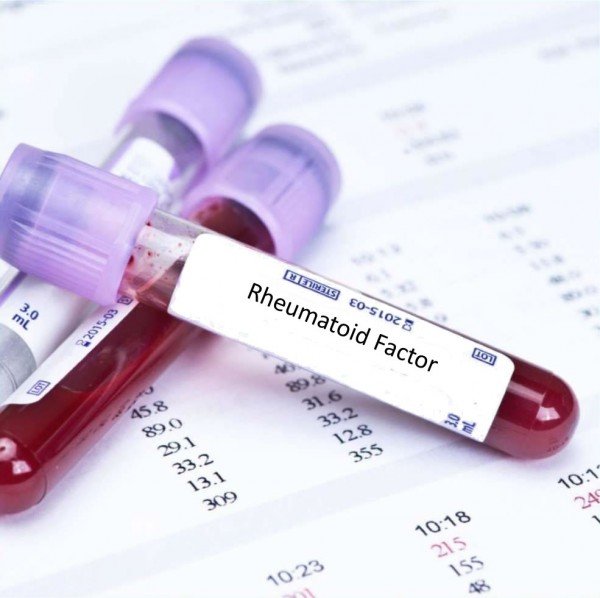Blog
 10 Mar 2021
10 Mar 2021
I have been diagnosed to have Rheumatoid arthritis. What next?
I have been diagnosed to have Rheumatoid arthritis. What next?
To fight Rheumatoid Arthritis, you have to understand the condition inside and out. Try to learn everything you can about this disease. It makes a huge difference if your initial experience of care is positive. As they say, a good beginning is half the battle won! Similarly, a correct diagnosis is the most important step.
1. Regular Blood Tests For Monitoring –
You will be requested to have regular blood tests. This helps doctors to identify if you are developing any side effects related to medications. Also, certain blood tests are requested to understand the response to treatment. Here are some commonly requested monitoring blood tests – CBC (Complete Blood Count), SGPT (liver function test) and ESR, CRP (inflammatory markers).
2. Quit Smoking –
Get advice and support on how to quit. Having Rheumatoid arthritis puts patients at increased risk of heart disease and smoking further increases this risk. Evidence shows that Rheumatoid arthritis treatment is less effective in people who continue to smoke.
3. Build Support –
Patients living with RA should discuss with family and friends the impact RA is having on their working life, emotional and mental health.
4. Access to the Multidisciplinary Team –
To help manage your RA you should have the opportunity to see specialist professionals including a rheumatologist, physiotherapist, dietician and psychologist if required.
5. Get Involved–
Try to get involved in your treatment. Show interest in understanding medications and symptoms. Learn more about your disease by joining a patient support group, reading information booklets, online forums or any other educational opportunities.
6. Access to a Specialist –
You should know how to get access to your doctor when you need it, for instance when experiencing side effects to medications or for help if you flare.
7. Exercise –
Ask your physiotherapist about an individual exercise programme designed for you. Exercise is essential and plays a key role in controlling the symptoms of RA including fatigue, pain, and referred pain. It’s also important to maintain a generally healthy lifestyle including a healthy diet and appropriate weight.
8. Pregnancy –
Get information and specialist care if you are planning to have a baby. Your RA will need to be more tightly controlled and monitored during family planning for both prospective mothers and fathers.
In addition, the following are highly recommended for people living with RA
• Have your blood cholesterol and sugar measured.
• Have your blood pressure measured and recorded and set a personal target that is right for you.
• Have your eyes checked – yes RA can affect eyes as well.
• Limit sugar and salt intake in your diet.
 15 Jan 2018
15 Jan 2018
RA factor (Rheumatoid factor) Test
RA factor is a protein (antibody) that is measurable in the blood with a routine blood test. A positive RA factor test means that level of rheumatoid factor in patient’s blood is high. A positive RA factor test is mainly used as a supportive tool in making the diagnosis of rheumatoid arthritis.
What is RA Factor?
Our immune system produces healthy proteins (antibodies) that fight off infections caused by bacteria and viruses. Sometimes, bad antibodies are produced by the immune system which can attack healthy tissue. RA factor is a bad antibody protein produced by patient’s immune system.
What Causes RA Factor?
It is unknown what triggers our immune system to produce rheumatoid factor. It is thought to be a combination of genetics and other external risk factors.
What Do RA factor Test Results Mean?
RA factor test is used by doctors to help in diagnosing rheumatoid arthritis. Approximately 70% of rheumatoid arthritis patients test positive for RA factor.
A negative RA factor test does not rule out the diagnosis of rheumatoid arthritis. In fact, there is no single test to diagnose rheumatoid arthritis. The diagnosis is made from a combination physical symptoms and medical history supported by various blood tests such as RA factor, anti-CCP antibodies and elevated inflammatory markers. Newer tests like anti-CCP antibodies are much more specific for rheumatoid arthritis.
Patients who test negative for RA factor but have signs and symptoms may still be diagnosed with rheumatoid arthritis. This is seen in around 30% patients with rheumatoid arthritis (seronegative).
Why Bother Testing for RA Factor?
Rheumatoid arthritis affects different patients in different ways. Rheumatoid arthritis patients with a positive RA factor test have the potential for a more aggressive disease course. Keep in mind this isn’t always the case. If RA factor is tested and symptoms are detected early, a diagnosis can be quickly reached. Treatment should be started as soon as possible to joint damage.
Do I Need to Check RA Factor Again?
The level of RA factor can fluctuate during the course of the disease but it does not correlate with disease activity and it does not normalise with treatment. If you have rheumatoid arthritis, it is not necessary to monitor the level RA factor. Inflammatory markers such as ESR and CRP are often elevated during active disease and can be good markers to monitor treatment response.
For more information please visit amolg9.sg-host.com
 11 Jan 2018
11 Jan 2018
Rheumatoid Arthritis and Pregnancy
-
- In the past, there were concerns that RA might affect the ability to conceive. But with recent advances, it is clear that if the disease is well controlled, most women with RA can have an enjoyable and successful pregnancy.
-
- The risk of foetal loss or genetic abnormalities for women with RA is not significantly greater than for any other pregnant women.
-
- Planning ahead is the key. Before you try to conceive, it’s important that you discuss with your rheumatologist.
-
- It is recommended to become pregnant when the disease is not active.
-
- All women who are planning to get pregnant should take folic acid supplements daily.
-
- Many patients may not need RA medications during the pregnancy if their disease is not active. The pain and swelling associated with RA is much improved during pregnancy in up to 75% women.
-
- Some of the drugs used to treat RA can be continued while trying to conceive or even during the pregnancy. It is advisable to consult with your rheumatologist before you stop any drugs.
-
- Certain medications like methotrexate and leflunomide should be stopped well in advance. There are medications like sulfasalazine, hydroxychloroquine and steroids are safe during pregnancy and breastfeeding.
-
- Although you may be concerned about the possible harmful effects of taking RA drugs, it is important to remember that uncontrolled arthritis during pregnancy can also have adverse effects on your baby such as low birth weight.
 06 Jan 2018
06 Jan 2018
I Have Been Diagnosed to Have Rheumatoid Arthritis. What Next?
To fight Rheumatoid Arthritis (RA), you have to understand the condition inside and out. Try to learn everything you can about this disease. It makes a huge difference if your initial experience of care is positive. As they say, a good beginning is half the battle won! Similarly, a correct diagnosis is the most important step.
-
- Regular Blood Tests For Monitoring – You will be requested to have regular blood tests. This helps doctors to identify if you are developing any side effects related to medications. Also, certain blood tests are requested to understand the response to treatment. Here are some commonly requested monitoring blood tests – CBC (Complete Blood Count), SGPT (liver function test) and ESR, CRP (inflammatory markers).
-
- Quit smoking – Get advice and support on how to quit. Having Rheumatoid arthritis puts patients at increased risk of heart disease and smoking further increases this risk. Evidence shows that Rheumatoid arthritis treatment is less effective in people who continue to smoke.
-
- Build support – Patients living with RA should discuss with family and friends the impact RA is having on their working life, emotional and mental health.
-
- Access to the multidisciplinary team – To help manage your RA you should have the opportunity to see specialist professionals including a rheumatologist, physiotherapist, dietician and psychologist if required.
-
- Get involved – Try to get involved in your treatment. Show interest in understanding medications and symptoms. Learn more about your disease by joining the patient support group, reading information booklets, online forums or any other educational opportunities.
-
- Access to a specialist – You should know how to get access to your doctor when you need it, for instance when experiencing side effects to medications or for help if you flare.
-
- Exercise – Ask your physiotherapist about an individual exercise programme designed for you. Exercise is essential and plays a key role in controlling the symptoms of RA including fatigue, pain, and referred pain. It’s also important to maintain a generally healthy lifestyle including healthy diet and appropriate weight.
-
- Pregnancy – Get information and specialist care if you are planning to have a baby. Your RA will need to be more tightly controlled and monitored during family planning for both prospective mothers and fathers.
In addition, the following are highly recommended for people living with RA
- Have your blood cholesterol and sugar measured?
- Have your blood pressure measured and recorded and set a personal target that is right for you.
- Have your eyes checked – yes RA can affect eyes as well.
- Limit sugar and salt intake in your diet.
- For more info please visit punerheumatologist.com
